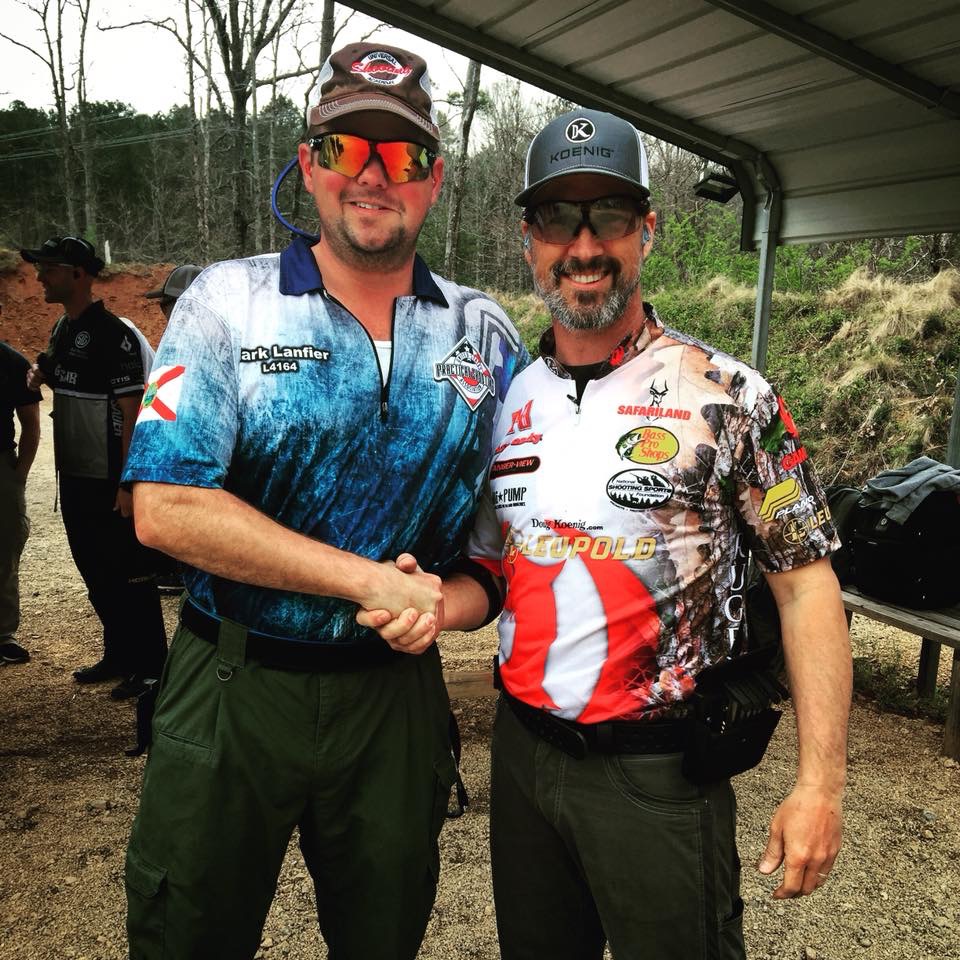Doug Koenig at the 2018 US Steel Challenge Championship | ||||||||||||||||||
| Personal information | ||||||||||||||||||
|---|---|---|---|---|---|---|---|---|---|---|---|---|---|---|---|---|---|---|
| National team | USA | |||||||||||||||||
| Born | ||||||||||||||||||
Medal record
| ||||||||||||||||||
Doug Koenig is an American sport shooter and one of the most decorated competitors in the history of American precision shooting sports. [1] At the 1990 IPSC Handgun World Shoot, Koenig became the first athlete to win a world championship using a red dot sight rather than traditional iron sights, a milestone that helped usher in a new era of optics in competitive shooting. He followed this with a silver medal in the 1993 IPSC Handgun World Shoot and a bronze in 1991.
Contents
Koenig is best known for his record-setting performance at the Bianchi Cup, where he has won 18 championship titles, making him the most successful shooter in the event’s history. His first-place finishes span from 1990 through 2024, with only a handful of second-place showings during that period.
He is also a three-time champion of the Steel Challenge World Speed Shooting Championships (1999, 2000, 2001), and has earned additional medals at the IPSC US Handgun Championship and the US National Steel Championship.
In addition to his pistol accolades, Koenig has found success in Precision Rifle Series, particularly in the PRS Production Class, where he won the National Production Class championship three years in a row (2019–2021) with perfect scores and continued to place among the top finishers in 2022 and 2024.
Koenig’s career reflects a rare level of dominance and versatility across both handgun and rifle disciplines, and he is widely regarded as one of the greatest competitive shooters of all time.
